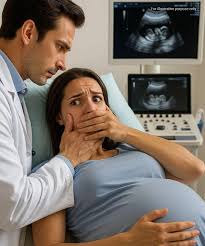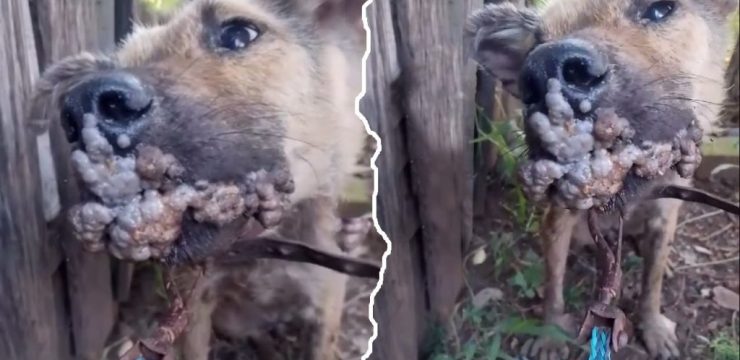Waking up to find your pillow damp isn’t exactly the best way to start the day. While most people brush it off as harmless drooling, there are times when it may be your body’s way of signaling something deeper. Drooling during sleep is surprisingly common, but depending on the frequency and cause, it can range from a simple nuisance to an indicator of an underlying condition. In other words, that little puddle on your pillow could be trying to tell you something important.

Drooling happens when excess saliva escapes your mouth while you’re asleep, and your body’s natural swallowing reflex isn’t as active. While it’s usually nothing to worry about, it can occasionally point to issues involving your posture, medication, breathing, or even neurological health. Understanding the cause can help you determine whether it’s simply a quirky habit or something worth addressing.
The Most Common Causes of Nighttime Drooling
Let’s start with the basics—drooling has more explanations than you might think.
1. Your Sleeping Position
If you’re a side or stomach sleeper, gravity is likely working against you. Sleeping this way makes it easier for saliva to escape, especially if nasal congestion forces you to breathe through your mouth. When your facial muscles relax, your lips may part slightly, allowing saliva to flow out while you rest.
2. Medications That Increase Saliva Production
Some prescription drugs can make you drool more than usual. Sedatives, certain antibiotics, antipsychotics, and even painkillers can ramp up saliva production as a side effect. If you notice it happening after starting a new medication, talk to your doctor—there may be alternatives or dosage adjustments available.
3. Nasal Congestion and Allergies
Blocked nasal passages are a classic culprit. When your nose is stuffed up from allergies, a cold, or a sinus infection, you’re forced to breathe through your mouth. Mouth breathing often leads to drooling, but in these cases, it’s temporary. Once the congestion clears, the problem usually goes away.
4. Deviated Septum
A deviated septum—when the wall between your nasal passages is off-center—can make breathing through your nose harder. Over time, this can cause chronic mouth breathing and, you guessed it, drooling. In more severe cases, a surgical procedure may be needed to correct the issue and improve airflow.
5. Sleep Apnea
This condition interrupts your breathing during sleep, often causing snoring, choking sounds, and mouth breathing. People with sleep apnea frequently experience drooling as a side effect. If you wake up tired despite a full night’s rest or your partner notices you gasping or snoring loudly, it’s time to see a doctor. Left untreated, sleep apnea can affect heart health, blood pressure, and overall well-being.
6. Oral or Dental Problems
Excessive saliva can also result from oral infections, gum disease, or dental issues like cavities and abscesses. These problems can stimulate saliva glands as your body tries to flush out bacteria. Warning signs include pain, swelling, bleeding gums, or discomfort when chewing. Regular dental checkups and prompt treatment can help prevent drooling caused by oral inflammation.
7. Gastroesophageal Reflux (GERD)
If you often wake up with heartburn or a sour taste in your mouth, acid reflux might be to blame. When stomach acid flows upward, it irritates the throat, making swallowing difficult. Your body responds by producing more saliva to neutralize the acid, which can lead to drooling. Persistent symptoms should be discussed with a doctor, as untreated GERD can cause lasting damage.
8. Neurological Disorders
In some cases, drooling is linked to neurological conditions that affect muscle control. Stroke, Parkinson’s disease, ALS, and Alzheimer’s can make it harder to coordinate swallowing movements, allowing saliva to build up and escape. Even severe vitamin B12 deficiency, which affects nerve health, may contribute. If drooling is accompanied by muscle weakness, slurred speech, or difficulty swallowing, seek medical advice immediately.
9. Teeth Grinding or Dental Appliances
People who grind their teeth (a condition called bruxism) or wear night guards may notice increased drooling. These habits or devices can slightly change how the mouth closes, making it easier for saliva to escape. Always check with a dentist before making any changes to dental devices, as they serve important protective functions.
10. Pregnancy and Hormonal Changes
During pregnancy, some women experience excess saliva production, a condition known as ptyalism gravidarum. Hormonal shifts, stress, and disrupted sleep patterns can all contribute. While it’s generally harmless, managing stress, staying hydrated, and sleeping on your back may help.
How to Reduce Drooling While You Sleep
If drooling interferes with your sleep, there are several steps you can take:
-
Change Your Sleeping Position: Try sleeping on your back to prevent saliva from escaping. Using a supportive pillow can help maintain this posture throughout the night.
-
Address Nasal Issues: Treat allergies or congestion with saline sprays, humidifiers, or doctor-approved medications.
-
Stay Hydrated: Dehydration thickens saliva, making drooling more noticeable. Drinking enough water during the day can help.
-
Use Mandibular Devices: Custom mouthguards or dental devices can help keep your mouth closed and reduce drooling.
-
Manage Sleep Apnea: If diagnosed, using a CPAP machine can improve breathing and decrease drooling.
-
Medical Treatments: In severe cases, Botox injections can temporarily reduce saliva production by affecting the glands that produce it. Surgery is rare and reserved for neurological causes that don’t respond to other treatments.
When It’s Time to See a Doctor
Occasional drooling is no big deal, but certain red flags shouldn’t be ignored. See a healthcare provider if drooling starts suddenly, worsens, or interferes with your daily life or sleep quality. You should also seek medical attention if it’s accompanied by difficulty swallowing, jaw stiffness, speech changes, persistent heartburn, or signs of infection. Identifying and treating the root cause early can make a big difference in comfort and health.
Final Thoughts
While nighttime drooling often falls into the “slightly embarrassing but harmless” category, it can sometimes reveal clues about your body’s condition. Whether it’s your sleep position, a blocked nose, or something more serious like sleep apnea or neurological issues, paying attention to this subtle signal can lead to better health outcomes. A few small changes—like adjusting how you sleep or addressing nasal congestion—can make a noticeable difference. But if drooling persists or worsens, don’t hesitate to talk to a doctor. After all, a good night’s sleep shouldn’t end with a soggy pillow.





